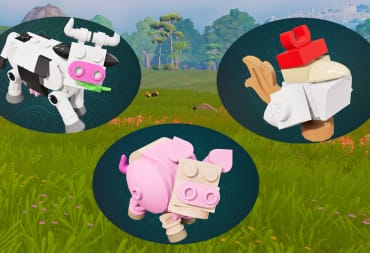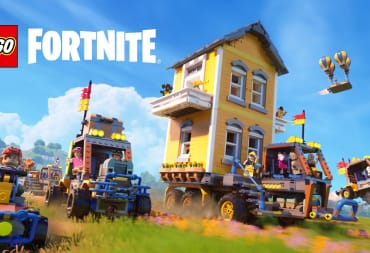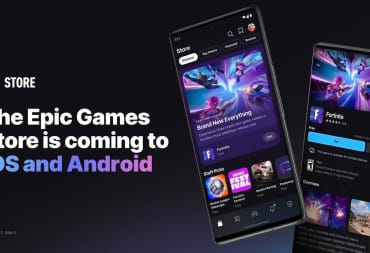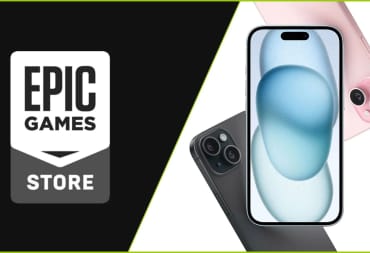Much like any other art form, there are no small number of games that are so good that they are almost transformative to the individual playing them. On occasion, there are also games that revolutionize the gaming industry as a whole, influencing not only their intended audience but the audience of every game of that genre that comes after. The best modern example of this is Fortnite, whose battle pass system has taken over the world of multiplayer gaming ever since its introduction five years ago. Regardless of whether you love it, hate it, or choose to ignore it, the fact remains that Fortnite has earned its place in gaming history partly because it was the first to popularize battle passes.
Of course, the concept of the battle pass existed long before Fortnite became a battle royale behemoth. Dota 2's Compendium, which first debuted in 2013, basically functioned as a modern battle pass would. However, the Compendium was tied to an annual esport event, limiting its reach compared to the ubiquity of loot boxes. By the time Fortnite released its first battle pass four years later, everyone was fed up with loot boxes, no doubt aided by Star Wars Battlefront 2's disastrous launch. This gave Epic Games the perfect opportunity to popularize its microtransaction model.
Indeed, the benefits of the Fortnite battle pass system speaks for itself. For starters, you know exactly what you pay for when it comes to battle passes. This alone made it a much safer alternative to loot boxes. Those who care about in-game prestige are given further incentive to keep grinding away to the end since that's usually where the most exclusive items are. Consequently, battle passes are generally viewed as a reasonably responsible way to spend money in a game, especially if you plan on playing for a long time.

Digital Cosmetics and Fictitious Scarcity
If you look past the surface-level benefits though, you might notice that battle passes are still predatory in their own way. For instance, most applicable games have battle passes that expire. If they expire, you're not getting a refund on any items that you didn't unlock and you likely won't be able to acquire those items anytime soon, regardless of if you bought the pass or not.
It's absurd to suggest that a digital item would expire, yet it's done to make the item in question seem more exclusive and thus more valuable. This tactic is commonly referred to as FOMO, or fear of missing out, and can be applied to both ends of a battle pass. Fictitious scarcity encourages people to buy the pass to begin with, and a fictitious expiration date encourages people to finish the pass otherwise they lose their money's worth.
Unsurprisingly, FOMO is very much a way to take advantage of those who have money and not enough time to play. People with jobs would be the prime target, proven beyond a doubt when a game has XP boosters or level ups for sale. A worker who labors for 40+ hours a week might see such offers as lifesavers, effectively helping them "accomplish" more in the few precious hours of gametime that they have each day.
Fortunately, some developers have tried the opposite approach to FOMO. The most notable case of this so far can be found in Halo Infinite as its battle passes don't expire. Plus, you get half a battle pass level for the first match you play each day (post Winter Update). All in all, it's a very reasonable approach that respects the player's time, or lack thereof. Alas, having a weekly rotating shop does work a bit against Halo Infinite's anti-FOMO veneer. Deep Rock Galactic has more roundabout method where the battle pass' items are integrated back into the game in various ways after the season is over. Not exactly the simplest of solutions by comparison, even if you can applaud the developers for more strictly sticking to their principles.
.jpg?itok=8suzFjMJ)
The Inequality of Quality Among Battle Passes
A slightly more insidious example of how battle passes can be predatory lies in the method by which they reward you, not just practically, but mentally as well. In the olden days, it was an uneventful affair to buy a cosmetic. You simply went to the store, picked the one you want, and that was that. Now, thanks to battle passes, every possible unlock brings a possible rush with it. By tying the rewards to a battle pass, you have an additional stimulus, like numbers go up, level-up sounds, or flashing lights. Over time, seeing a number go up would make the player feel like every reward is potentially worth chasing.
This notion is not as silly as it sounds. Consider how battle passes always feature a mix of good rewards and bad rewards. If given a choice, no one would ever pay attention to a common tier reward when there's premium currency or a legendary cosmetic at stake. However, it would probably be safe to say that everyone checks their unlocks when they level up a battle pass in spite of the fact that this action in itself doesn't serve any practical purpose. That's because the simple notification of leveling up has become tied to the reward itself. Think of this as similar to ringing a bell before giving food to a dog, causing the dog to associate the sound of the bell with food regardless of if there is any food, at least for a while. If this rings a bell, then you may have heard about classical conditioning (or Pavlov's experiment).
Multiplayer game developers likely don't want their audience to get rewarded too quickly either as that would be counterproductive to maintaining a "loyal" long-term playerbase. This is where challenges come in. Similar to how an animal might be taught to press a specific button to get food, or operant conditioning, players are encouraged to do certain things to get the stimulus of leveling up. In this manner, completing challenges are also linked to the reward.
.png?itok=9zppWGhR)
Naturally, these two forms of conditioning only really work if there is something good at stake. After all, it's much harder to be excited about a level up if you're getting trash constantly. Destiny 2's battle passes are a rather notable example of this. The paid track has an exclusive armor set, some upgrade materials, and a few Legendary Engrams. Like a rollercoaster, the exciting levels with gear are more or less dispersed regularly among dips filled with comparative junk to make the entire pass seem better as a whole.
On the other hand, the free track starts off somewhat weak, peaks a little towards the middle, then falls off hard near the end. If you're not paying for the pass, the level ups are near meaningless if you're getting regularly getting showered in basic currency, cosmetic loot boxes, or literally nothing. Sure, you get a guaranteed Legendary weapon regardless, but it's around 30+ levels of mediocrity until then, followed by another 50 or so levels of near nothingness. It's hard to imagine anyone getting excited about a level up or chasing challenges if you're getting nothing the vast majority of the time.
That being said, there are ways for developers to make their battle passes stand out regardless of its actual content. Fortnite's battle passes give enough premium currency to be able to afford another battle pass, a practice that few developers have copied to this day. This obviously makes the pass seem very valuable as one pass can theoretically let you buy an infinite number of future passes. It's a fantastic deal if you love the game, and surprisingly consumer friendly if you ignore how this is designed to keep you playing as much as possible. It's not so great a deal if you start to get bored or simply want to play something else as your money is being held hostage.
Another approach that Call of Duty: Modern Warfare 2 (2022), Deep Rock Galactic, and Rainbow 6: Siege have adopted is to literally give you a map and let you choose what you want to unlock. Doing so gives the player some agency in the matter, which is a great way to make players look forward to each level up. That this method makes mundane rewards seem slightly less mundane on account of you choosing the reward is surely a coincidence.
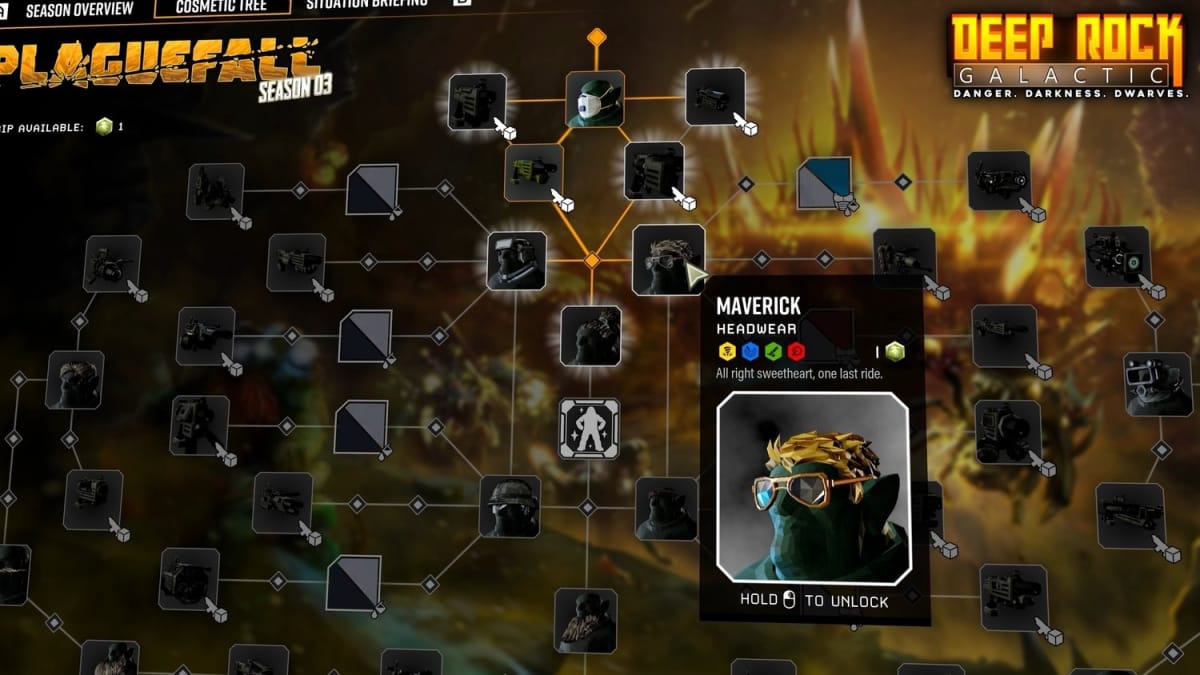
The Fortnite Battle Pass Traded Gambling for Pure Addiction
There are extreme outliers to battle passes too. Deep Rock Galactic's battle pass is completely free. One would assume that the vast majority thus find the rewards to be quite valuable, certainly no less valuable than any reward in a paid battle pass. Exclusivity might give things value, but free stuff is free stuff, and the cosmetic that you have is infinitely more useful than the cosmetic that you don't.
On the flipside are battle passes that are so bad that they could've killed the battle pass model altogether had they released before Fortnite's version. For instance, a recent Game Awards winner in the mobile games category, Marvel Snap, has loot boxes in their battle passes on top of a separate progression system that also revolves around loot boxes. The most zealous defenders of the game would say that this is fine as the loot boxes are free for everyone and the odds aren't as atrocious as they could be. Frankly, these people are naive.
We can't forget about Overwatch 2 either. You don't have to look hard to find people who are dissatisfied with the fact that new heroes are locked behind the battle pass, and for good reason. If you don't pay up, you and every team you join will be at an innate disadvantage until you make it halfway down the battle pass. Unless the new hero is complete and utter garbage, being able to counterpick on the fly is necessary in such a game.
Putting new heroes behind a battle pass gives Blizzard an incentive to make the heroes ever so slightly overpowered as well. Of course, Blizzard would never admit to doing such a thing on purpose, as if Kiriko and Ramattra are weak heroes by any metric. You could say this is pay to win, though Blizzard is walking an absurdly fine line as the new heroes are technically free.

It goes without saying that while Fortnite's battle pass model is a significant improvement over loot boxes, there are still dangers associated with them. One can easily imagine worst-case scenarios where all these built-in psychological hooks have a cascading addictive effect on a vulnerable individual. "What's another $10 for a few levels and a cool skin?" they may ask. Next thing they know, hundreds of dollars are gone chasing the addiction. The concept of whales, people who spend far in excess of the average on games, isn't exactly a new one after all, and it's no secret that developers love whales.
Ultimately, battle passes are generally an extension of the capitalist greed that has infested the industry. How else would one describe a feature that literally separates the haves and the have-nots? Even if you were to completely remove all the addictive aspects from the equation, the system benefits those with the most time or money. The worst examples tend to be little more than loot boxes with better PR or borderline extortion. Fortunately, developers seem to be aware that as good as Fortnite's battle pass is for Fortnite, it is still merely a foundation that can be improved upon, one which can be used to enhance the overall experience of the game.
Have a tip, or want to point out something we missed? Leave a Comment or e-mail us at tips@techraptor.net
.jpg?itok=VWoH_5xC)






